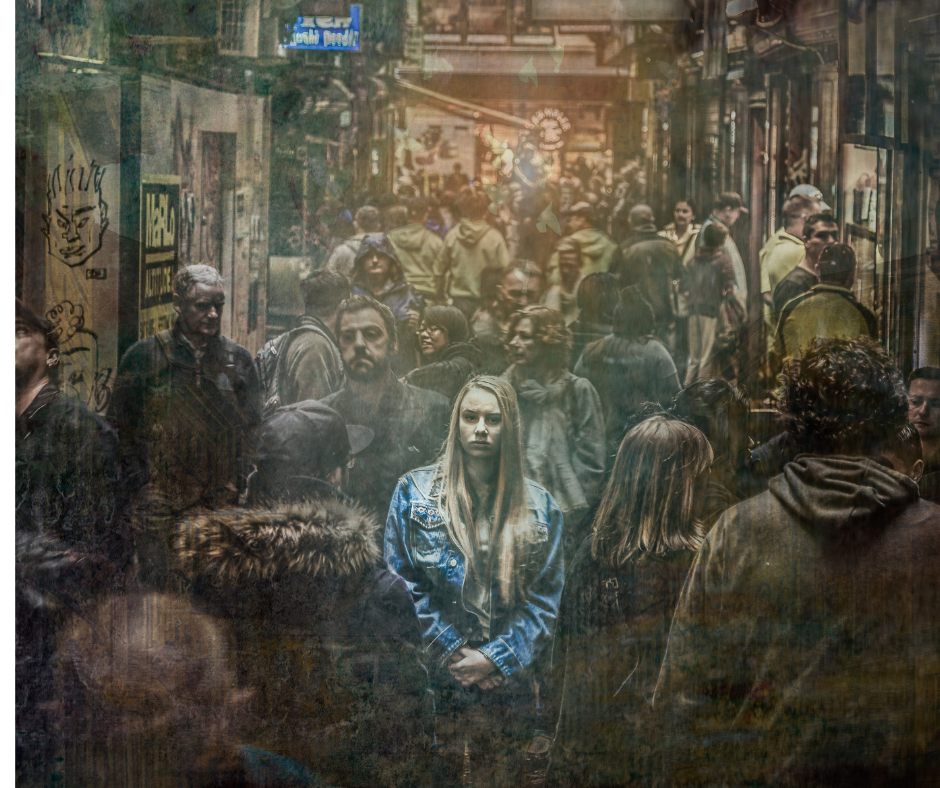“the pandemic has given rise to a sense of loneliness and isolation… In recent times, many of us have had far less access to loved ones. Tech … convenience and cost efficiencies are driving more and more activities online… many [are also] adapting to home and hybrid working… we need to embrace this change while building and maintaining meaningful connections with our colleagues”. Mental Health UK

Does this resonate for you? Has loneliness, or lack of meaningful connection with others negatively impacted your mental health? Or maybe you feel like challenges with your mental health have contributed to feelings of loneliness or disconnection from others.
The theme for this year's Mental Health Awareness Week is ‘loneliness’ – and we’re encouraged to think about how connecting with others might help to improve our own and other people's mental health.

There is, of course, a world of difference between being alone, and feeling lonely. As an introvert, I don’t just cherish time alone – I need it, to recharge my social battery and check in with myself. Time alone is, for me, an important part of taking care of my mental health.
The times when I feel lonely don't tend to have anything to do with being alone. In fact, loneliness is more likely for me to come hand in hand with being surrounded by others at a time when I’ve felt unable to connect with other people: when it’s felt like what’s going on in my head is so far removed from how everyone around me seems to be experiencing the world that I feel utterly alone in my experience – and unseen by those around me.
The irony is that the chances are very high that those people around me who appear to me to be sailing smoothly through life with no worries or struggles are either experiencing their own, equally unseen, challenges, or have experience of being around or supporting others who are struggling.
Taking steps to connect with others by sharing how we’re feeling or experiencing the world, or acknowledging others’ feelings or experiences, can be a revelation. For those who are struggling, the realisation that “it’s not just me who struggles with this” can have a profoundly positive impact on their feelings of loneliness and on how able they might feel to foster connections with and even seek support from others. For those who haven’t had similar experiences, connecting with and listening to others can offer insights that enable them to bring greater awareness to their interactions with others. Suddenly, that room full of people that feel so far removed from how you’re feeling becomes a room full of people that are far more likely to “see” you.
But how do we do go about connecting with others? For those who are struggling with mental health, this challenge can often be a double whammy. They may feel literally incapable of articulating their feelings. And, despite the leaps and bounds we’ve made in recent years around acknowledging and talking more openly about mental health, it’s not at all uncommon to feel apprehensive or even fearful of sharing feelings or experiences that might still seem taboo. It can feel like a big step to tell people that you’re struggling with your mental health.
For those seeking to understand others’ mental health challenges better, reaching out and connecting can feel like a minefield: they may be fearful of saying the “wrong” thing and making things worse, or might simply not know what to say, or how to respond.
Thankfully, there are lots of resources out there to help us as we navigate what might feel like tricky terrain. Click here for a helpful starting resource from Mental Health UK
It can be useful to remember that there is no “right”, textbook way of communicating about mental health. Different approaches will work for different people and situations. Keeping in mind that connecting isn’t just about talking can also be helpful. Connection can be about just being there – perhaps as part of a community, perhaps as a support to someone close to you. Sometimes, just knowing others around you are aware of what you’re struggling with – that they can “see” you – can be the best kind of support you can offer someone who is struggling.
For me, practising yoga with others offers just this kind of experience: I'm having my own, unique experience of how it feels to practice yoga in my body, in this moment, and I know that everyone else around me is also having their own unique experience. Yet at the same time we're all sharing an experience that connects us, of practising yoga together.
If you'd like to explore more about, or share your experiences of, stress or anxiety, and practice some techniques to help you manage stress, in a supportive, friendly environment, check out my Yoga workshop for stress and anxiety.

Sharing our own experiences of connecting with others can also be really helpful. So please do share your experiences in the comments below: what’s worked for you? what hasn’t? Better still, use the comments to share your own challenges or questions around this: it’s a great way to start learning to be vulnerable by accepting that we don’t need to know what to say or how to say it to start talking about mental health – we just need to have the intention to start.